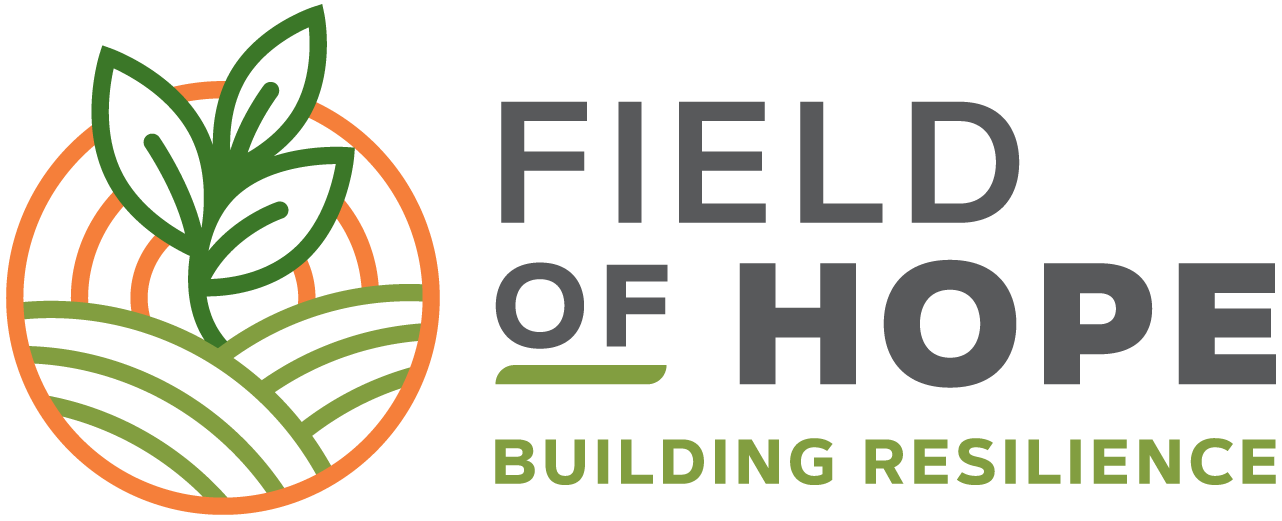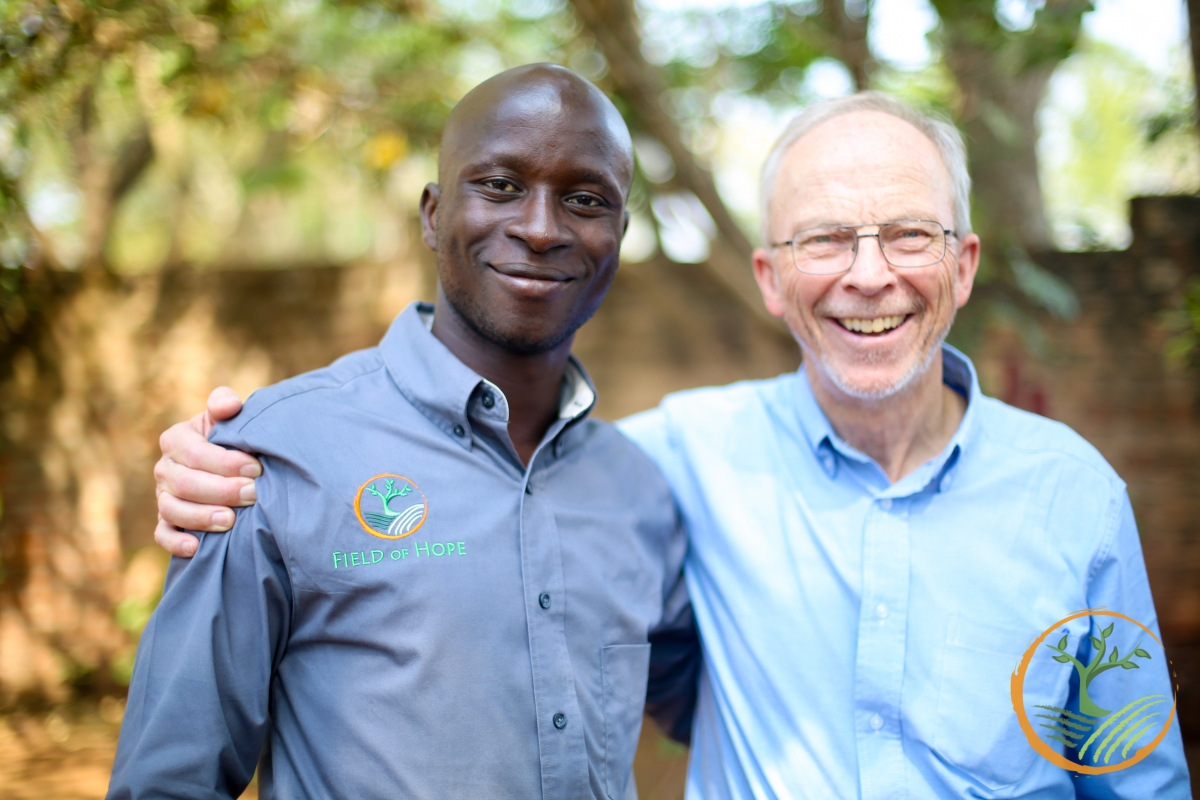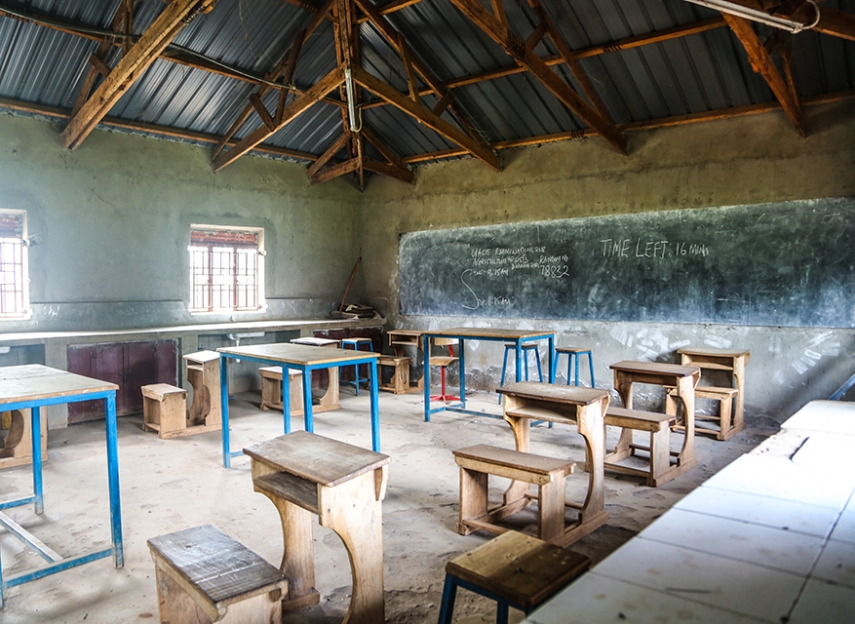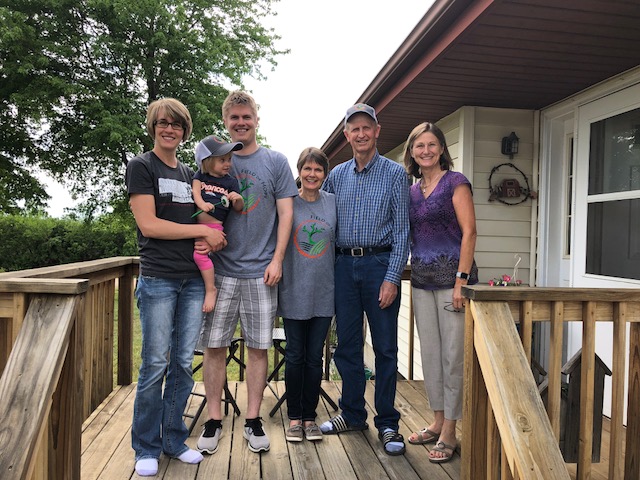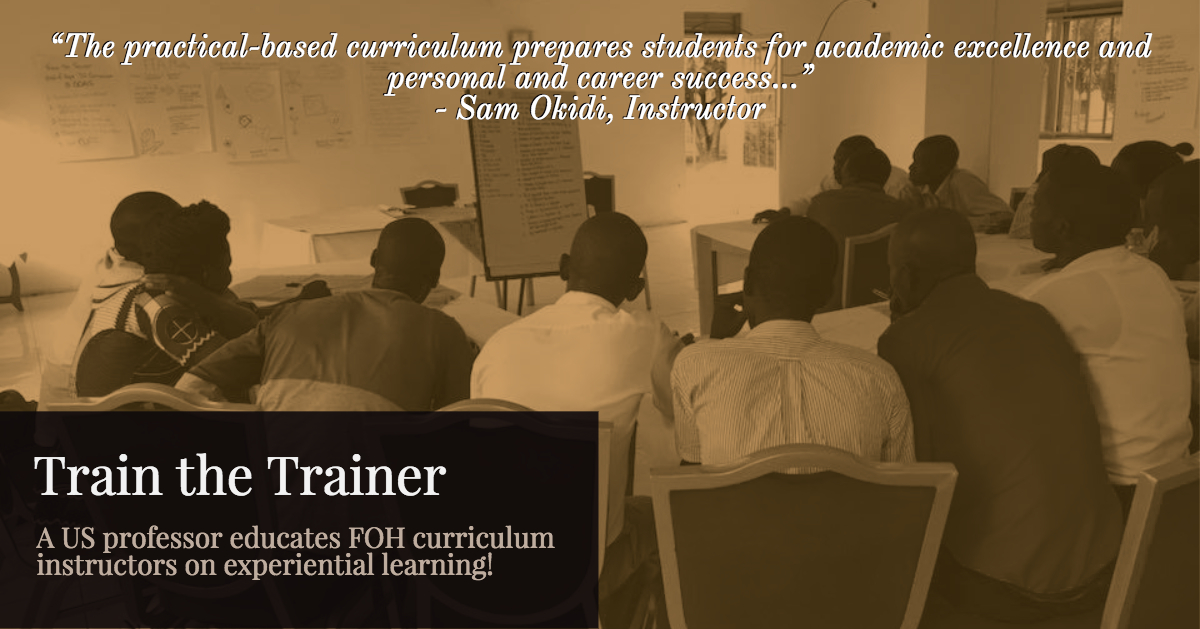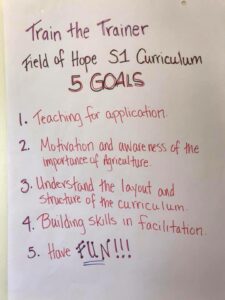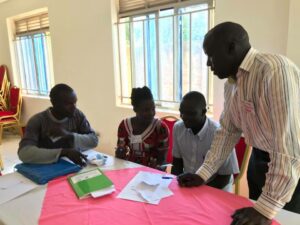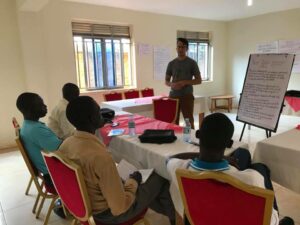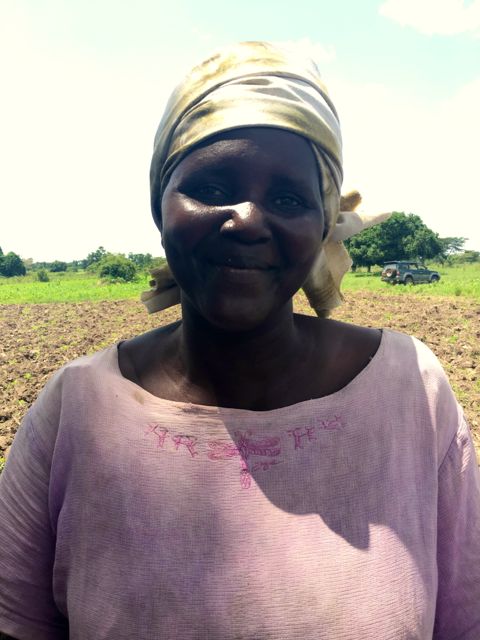Walter Okullu is Field of Hope’s inaugural Ugandan scholarship recipient. A long-time friend and trainer of Field of Hope, we are beyond excited to witness and encourage his development!
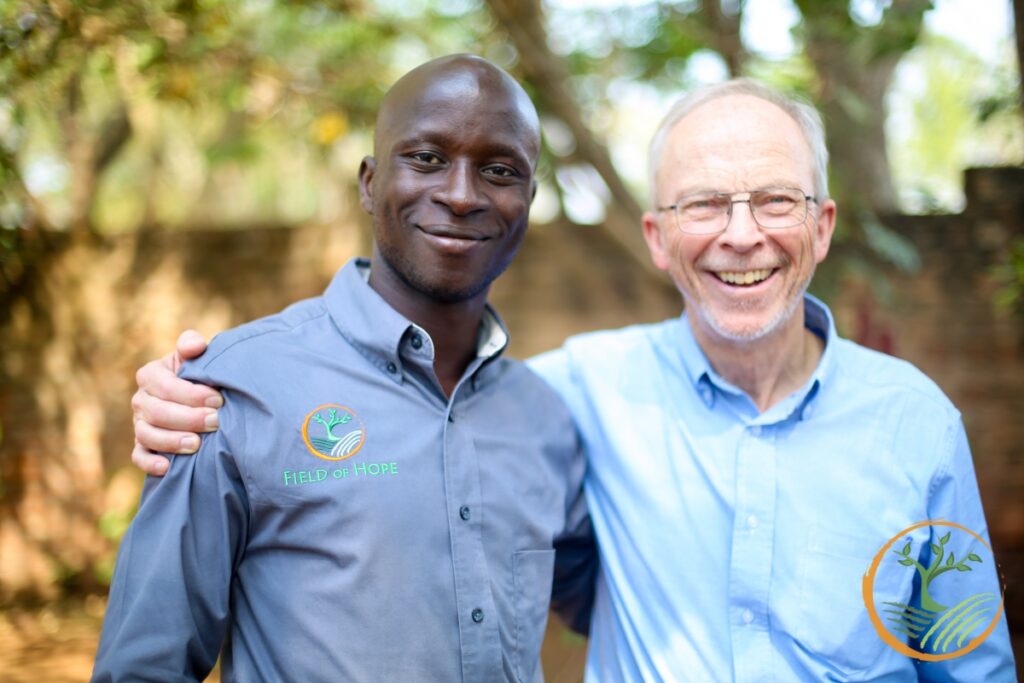
Walter with Mike Hafner, Co-Founder and Executive Director.
Walter was raised in Aduku of Apac District in Northern Uganda. He was the first-born of seven (all boys but one!), and his family accommodated five other relatives along with both of his parents. In Walter’s words, his family was “God-fearing and church active”. His father is retired from teaching secondary school (high school) and now works in the church and on the farm. Walter said he was younger than most of his cousins, who lived with him, but he was very active with them in football (soccer) and church. He also was fond of scientific innovations.
“Given the extended family together with the little financial resources, it was hard to balance education and other basic needs for the family. But my parents, being so passionate about education, figured out how to ensure everyone studied with the meager resources they earned. This meant all the financial resources went towards education. However, one means that bailed us out was farming. This meant we could have food all year round, and the surplus could be sold to meet other essential needs in the family. This allowed my relatives and me to study all through to the college level. Nevertheless, we would always be involved in garden work during off-school time, even at this young age.”
Walter said that seeing his parents providing for his cousins and relatives gave him “an understanding and appreciation of different people, not necessarily my own blood brothers or sisters…” This gave him a “heart of sharing and the belief that everyone has a right to living a fair life.” This fair life, though, was only made possible through agriculture. A fair life means having access to food, and food could only be made available through agriculture.
“With farming providing that much support in our family, everyone, including me, came to appreciate that it was at leveled terms with the job my father was doing, since both were a means of living. This made me appreciate and treat agriculture as my bread earner. Every garden work from land preparation to harvesting I was part of.”
Walter invested in agriculture early on. After receiving one hen from his cousin, he multiplied that to 60 hens. He then traded those hens for goats, a profitable business in Uganda. Walter now serves as an agricultural officer for the Dokolo District. He also works for Field of Hope as an agricultural trainer. When asked where his passion for agriculture comes from, he responded:
“I would attribute (my passion) to many factors:
- First and foremost, God tells us a lot about agriculture in these readings: Proverbs 20:4, Deuteronomy 28:8, 28:12, Genesis 1:11-12.
- I come from an agricultural background where it is the sole earner for most of the community members, including my family. In fact, my late grandfather was an agricultural officer who instilled that discipline in our family.
- From my parents: they struggled with us due to the little resources they had. I started appreciating right from a very young age that agriculture is just not for food but a means of living. So many people are not having formal jobs, but from my family experience, I know for as long as one can go into agriculture, he can live a happy life.
- Nationally, given the fact that there are few extension officers in the country compared to the number of farmers, it makes me feel compelled to bridge this gap of lack of extension services that our rural community cannot access.
- The change in global peace. There is a lot of war in the world. It is so touching to see children, adults, mothers starving, due to these insecurities, which can’t allow them to farm or have access to food, and yet this is a basic need. I feel indebted to do something about this, but neither do I have the means to go and fight to bring these to an end nor traverse the world to distribute food aid to them. But, hey, I can help increase production and improve the standard of farm products that can contribute to the overall global food requirements that may help cater for the refugees, as well.”
After four years of University, Walter hopes to graduate and elevate from his current employment position. He also said he hopes to “empower the community more, so that they take agriculture as a modest way of life”. He also hopes to increase his own personal agricultural enterprises. He strives to impact the industry by empowering youth and women and encouraging his country to tap their potential. Walter would also like to contribute his voice to policy creation on a government level and work with communities to attract funding for advanced agricultural projects.
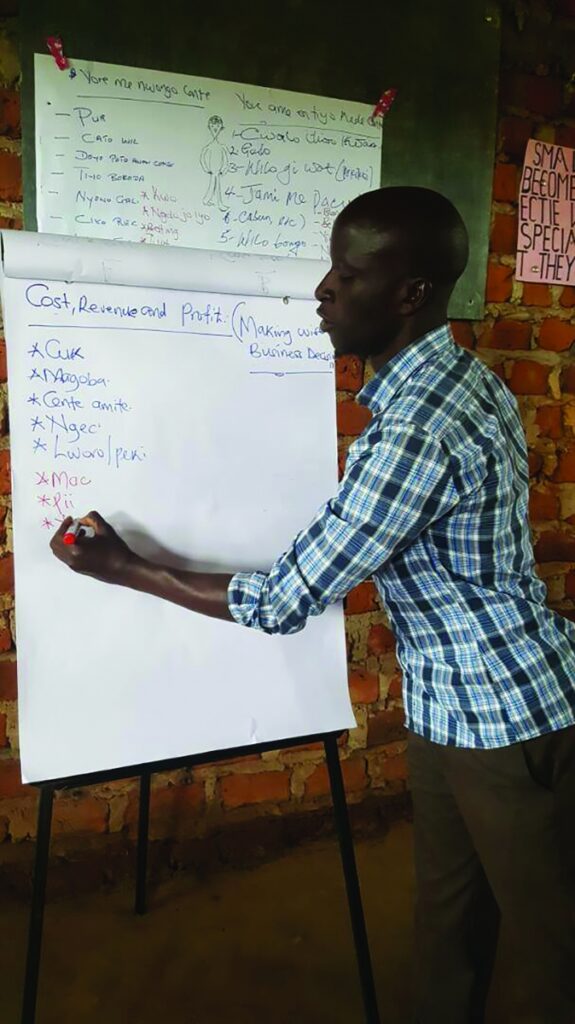
Walter leading a training for smallholder farmers through our Women’s Group program.
“I am deeply indebted to God Almighty and Field of Hope. What Field of Hope is doing is a one-in-a-million chance. Thank you for being considerate to me and the Ugandan community at large. You are such a blessing. I forever will be grateful to you all. I look forward to more unity for this cause, as there are many people who are desperate, not necessarily because they don’t have where to grow crops and keep animals, but because they lack the knowledge on how to utilize God’s gift of natural resources. This is the gap we have to come in and bridge so we can have a happy population.”
Congratulations, Walter! We are so proud of you and look forward to your bright future!
